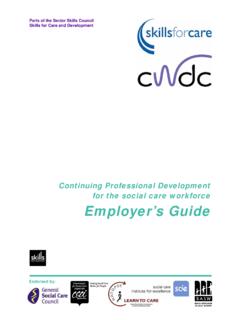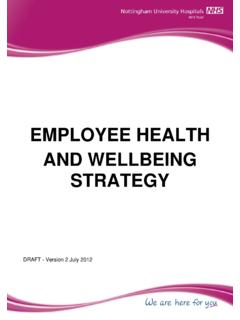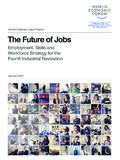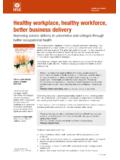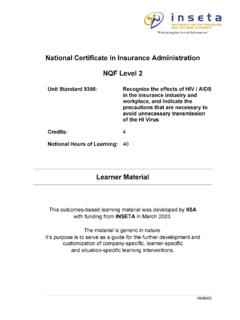Transcription of Improving the quality of Positive Behavioural …
1 Improving the quality of Positive Behavioural support (PBS): The standards for service providers and teams Beta version Foreword Positive Behavioural support (PBS)1 It is within this context that the following is recognised as an evidence-based, standards for service providers and teams effective and ethical way of supporting have been developed. Additional standards people with learning disabilities across the for training are also available from the lifespan, who are at risk of behaviour that PBS Academy: challenges2. PBS and/or its components Improving the quality of Positive have been recommended in several Behavioural support (PBS): The standards recent policy documents and professional for training guidelines including the NICE guidelines for Challenging Behaviour; Ensuring Both documents are independent of quality Services; Positive and Proactive the establishment of an accreditation Care: Reducing the need for Restrictive process. There is currently no accreditation Interventions; A Positive and Proactive body responsible for the accreditation Workforce; and Supporting Staff who work of PBS.
2 Establishing standards is a first with people who Challenge Services3. and necessary step of any accreditation infrastructure and it is anticipated that any The final report of the post Winterbourne organisation offering accreditation in the consultation examining services in the UK future will base the accreditation process for people with learning disabilities and/ upon these standards. or autism published in February 2016, Time for change: The challenge ahead Developing local capacity and the acknowledges PBS as the recommended competence of everyone involved in the framework for working with people with delivery of evidence-based and high- quality learning disabilities at risk of behaviour supports to people with a learning that challenges; and cites as one of its main disability and challenging behaviours is recommendations: critical to the successful implementation of PBS. Improving the quality of Positive The Transforming Care programme must Behavioural support (PBS): The standards consider the accreditation of training in for service providers and teams are for all Positive Behavioural support with a view to services irrespective of size or ownership establishing an appropriate body to manage and are designed for individual service the design of a PBS Standard and tiered settings, rather than whole service provider accreditation systems for individuals and organisations.
3 However, some standards do organisations delivering and receiving PBS. refer to the policies or practices of the larger service provider organisation within the context of supporting the individual service setting in its implementation of PBS. 1. Positive Behavioural support is sometimes referred to as Positive Behaviour support . The PBS Academy uses Positive Behavioural support to ensure that the emphasis is not on specific behaviours but on a Behavioural approach to understanding and working with challenging behaviour. 2. See appendix 1 for a definition of PBS. 3. Full references are given at the end of this document 2 | PBS Academy | Core assumptions The terms person and people are used throughout the document. PBS is relevant PBS as a framework involves the primary to anyone with a learning disability at use of constructional principles and risk of behaviour that challenges and it is procedures from behaviour analysis to understood that the terms throughout the assess and support behaviour change text include children and young people.
4 But includes the secondary use of The standards are applicable to services other complementary, evidence-based providing support to children and young approaches to support behaviour change at people, but do not include content in multiple levels of a system . respect of education provision. Furthermore, whilst these standards It is recognised that a range of regulatory and associated criteria cover all the core bodies exist which inspect or evaluate components of PBS framework (Gore et services that support people with al, 2013) many of the standards can be learning disabilities ( the Care quality considered staple features of high- quality Commission (CQC), Care and Social support for people with learning disabilities Services Inspectorate Wales (CSSIW)). in general, whether or not a service provides This document does not duplicate or PBS. They need to be included because the supersede standards set by these bodies. primary goal of PBS is to increase quality It is acknowledged however that there is of life: its theoretical underpinnings and likely to be some overlap.
5 In practice, a the processes involved are implemented service that meets the standards outlined in within the context of its core values and it this document may also meet many of the is recognised that a service not evidencing requirements set by regulatory bodies, and these staple features will not be able to vice versa. effectively implement PBS. It is assumed that any service provider Copyright organisation will also meet the standards outlined in Improving the quality of Positive The Improving the quality of Positive Behavioural support (PBS): The standards Behavioural support (PBS): The standards for training for in-house training; or will for service providers and teams has commission training or specialist services been produced by the PBS Academy and that meet the training standards. is licensed under a Creative Commons Attribution-NoDerivs International It is recognised that not all services will have License CC BY-ND all the skills in house to meet the standards for accredited services.
6 It is assumed however that the responsibility lies with the service or its provider organisation to bring in appropriate expertise when needed and This license allows for redistribution, that external specialist support meets the commercial and non-commercial, on the relevant standards. basis that it is passed along unchanged and in whole, and credits the PBS Academy. We encourage nonetheless the development of additional resources such as audit and self-assessment tools that map on to these standards, and that these are then made available under a Creative Commons Attribution-ShareAlike International CC. BY-SA 3 | PBS Academy | Standards and Criteria Domain Page 1. The experience of the person, including children and young people, and those involved in their lives 5. The standards and criteria 2. Assessment: Functional, contextual, and skills based assessments The standards and criteria 13. 3. Intervention: Developing and implementing a Function based Behaviour support Plan 20.
7 The standards and criteria 4. Facilities, resources, and workforce The standards and criteria 26. 5. Keeping all people safe: least restrictive practice and maximising quality of life The standards and criteria 31. 4 | PBS Academy | Domain 1: The experience of the person, including children and young people, and those involved in their lives The purpose of the experience of the person domain is to ensure that services and those supporting the individual, operate from a person-centred foundation to enable a high quality of life for all concerned. This includes mitigating risk factors for the development and maintenance of behaviour that challenges and creating high quality and supportive environments. These will meet a person's social, physical and mental health needs, and facilitate engagement, communication, choice and control. The standards defined here should be staple features of any high- quality environment for people with learning disability whether or not they display challenging behaviour.
8 STANDARDS. PE1 The service evidences how the PBS values base informs their practice The service evidences that they know each person they support and PE2 can match that support with goals that are important to the person and their families The service evidences that each person is supported to PE3. communicate effectively The service evidences that each person is supported to make choices, PE4. and participate in meaningful activity The service evidences that the physical, emotional and psychological PE5. health and wellbeing of each person is supported and promoted The service evidences that they actively seek the involvement of family, PE6. friends and wider community for each person they support The service evidences that people feel safe and secure, valued and PE7. respected, in predictable and stable environments 5 | PBS Academy | CRITERIA. PE1 The service evidences how the PBS values base informs their practice PE1. The service has a statement that details the values that underpin its work.
9 C1. PE1 All staff can describe the service's values and it is clear from its culture and C2 staff members' behaviour that these inform their day to day work. Service managers value and prioritise opportunities for staff to reflect, PE1 question and discuss their working practices and the impact these can C3 have on challenging behaviour. Opportunities for reflection are a regular part of supervised practice. The service actively seeks and uses feedback from the persons they PE1. support (or their representative) and their family and friends about the C4. service and its values. External feedback from persons supported (or their representative), their PE1. family members and people from the wider community acknowledges that C5. the practice of the service is indicative of a values-led culture. PE1 Evidence from a range of sources indicates that each person feels valued, C6 respected, safe, and secure in the environment provided by the service. 6 | PBS Academy | CRITERIA.
10 The service evidences that they know each person they support and PE2 can match that support with goals that are important to the person and their families Each person's historical context, their social, medical, developmental PE2. history and previous experiences including adverse life events, is known, C1. documented and considered when organising support . The service uses a range of individually tailored methods to identify PE2. each person's likes and dislikes, skills and abilities, strengths, needs, C2. hopes and aspirations. Each person supported by the service has a person-centred plan and the support they receive is sensitive to their goals, preferences, and needs, PE2. including any religious or cultural needs. This is summarised into a short, C3. accessible profile which captures the important information about them, their needs, communication style, and their goals. Staff consult with each person and their family, friends and others close PE2. to them to identify goals that are important to the person, and to develop C4.
